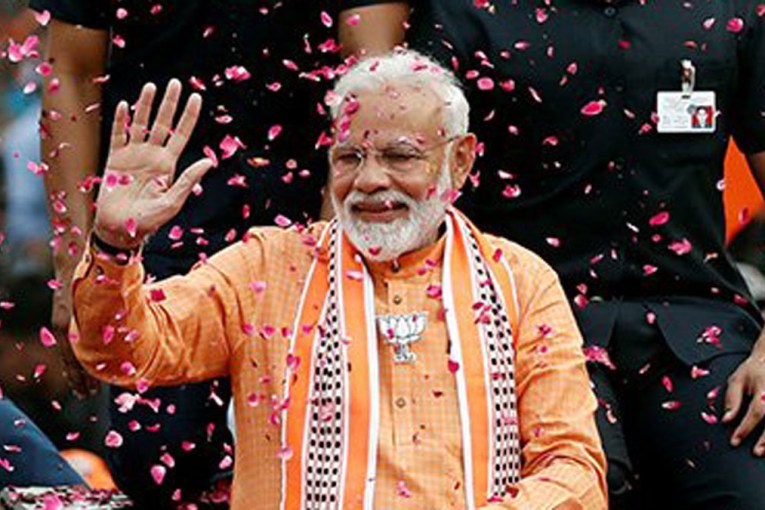G7 leaders mock bare-chested Putin
Leaders of the Group of Seven wealthy nations have mocked the macho image of their absent adversary Vladimir Putin at a meeting in Germany dominated by the Russian president’s invasion of Ukraine.
As the besuited leaders sat down for their first meeting of the three-day G7 summit in the sweltering Bavarian Alps on Sunday, British Prime Minister Boris Johnson asked if their jackets should come off – or if they should even disrobe further.
“We all have to show that we’re tougher than Putin,” Mr Johnson said, to laughter from some of his colleagues.
“Bare-chested horseback riding,” shot back Canada’s Justin Trudeau.
“Oh yes,” said European Commission President Ursula von der Leyen. “Horseback riding is the best.”
“We’ve got to show them our pecs,” Mr Johnson quipped – before the leaders posed (jackets on) for photos and the media was quickly hustled out of the room.
Mr Putin, who prizes his sporty image, has been pictured shirtless several times in photos released by Russian state media, including one set in which he rode a brown horse while wearing wraparound sunglasses, a gold chain and army trousers.
The G7 leaders discussed efforts to further isolate Russia over its invasion of Ukraine, which has killed thousands of people and driven millions from their homes.
Britain, Canada, Japan and the US announced moves to ban imports of Russian gold. The G7 also includes France, Italy and Germany.
Elsewhere, NATO leaders are expected to urge Turkish President Tayyip Erdogan to lift his veto over Finland and Sweden’s bid to join the military alliance, as the West strives to send Russia and China a signal of resolve.
Negotiations among an often-fractious organisation were still under way, diplomats said, but leaders also hoped to agree to provide more military aid to Ukraine, increase joint defence spending, cement a new resolve to tackle China’s military rise and put more troops on stand-by to defend the Baltics.
Spain is also pushing for more NATO focus on the southern flank to address migration and militant groups in the Sahel region of Africa.
Prime Minister Anthony Albanese will join the leaders of New Zealand, Japan and South Korea for part of the summit, part of a broader US strategy for a more assertive Western presence in the Indo-Pacific region to counter China.
“We will do more to ensure we can defend every inch of allied territory, at all times and against any threat,” NATO Secretary-General Jens Stoltenberg said last week.
Although British and US officials have advised against a Baltic request for permanent multinational forces in the region, the summit is likely to settle on a compromise of promising rapid reinforcements.
Germany has already said it will put more troops at the ready to defend Lithuania should Russia seek to seize NATO territory and Britain is expected to do the same for Estonia, while Latvia is looking to Canada to pledge more troops there.
NATO – created in 1949 to counter the Soviet threat – is under no treaty obligation to defend Ukraine, as the former Soviet republic is not a NATO member.
But Mr Putin’s February 24 invasion has sparked a geopolitical shift as once neutral countries Finland and Sweden seek to join NATO and Ukraine has formally become a candidate to join the European Union.
If accepted, Finland and Sweden’s inclusion into NATO would bring about the expansion of the alliance that Mr Putin aimed to prevent.
“I think it sends an important message to Putin. And I think it would actually significantly strengthen the alliance,” US Senator Angus King said of Finland and Sweden, following a trip to Finland, Latvia and Turkey.
However, Turkey is also testing that unity, angered by what it says is Helsinki and Stockholm’s support for Kurdish militants and arms embargoes on Ankara.
A Turkish government official involved in the talks between the three countries and NATO’s Mr Stoltenberg told Reuters it would be difficult to reach a deal at the summit, saying that Sweden and Finland must first address Turkish concerns.
“There were meetings, but unfortunately steps we expected are not being taken,” the official said.
Sweden has set up a process for ongoing consultations, diplomats said. But two senior NATO diplomats said the dispute was less about technical benchmarks and more about politics.
-with AAP








